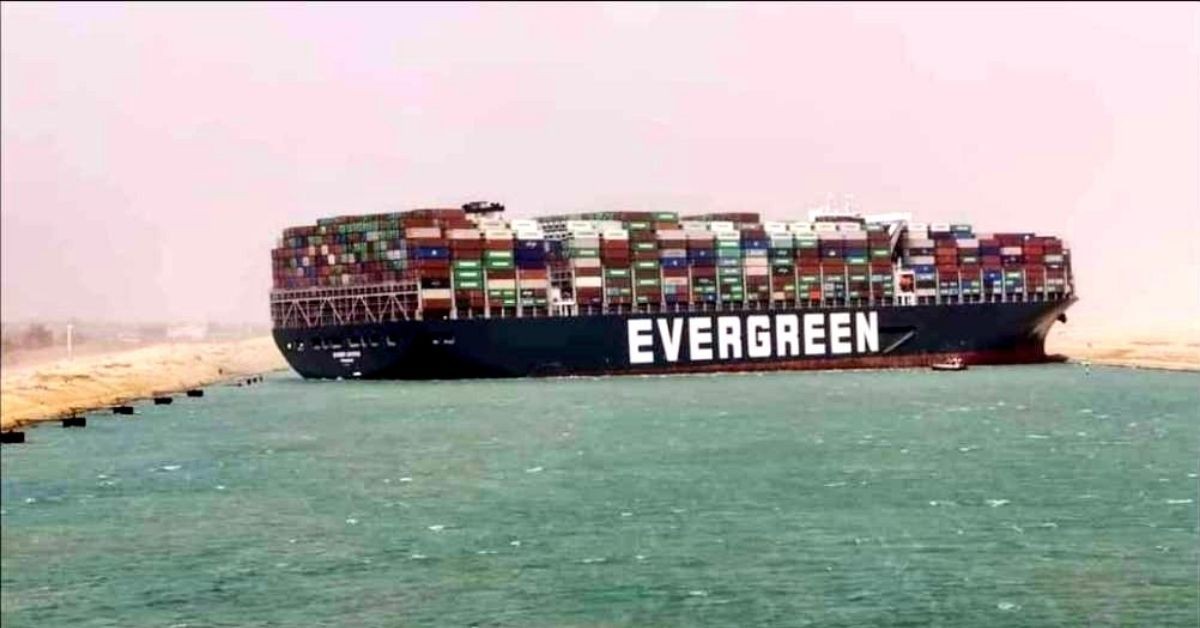There are currently no clear prospects as to when container ship Ever Given, grounded in the Suez Canal, will be dug free, and this news now has Maersk considering alternative routes.
At the moment, Maersk has nine container ships and two partner ships waiting in the area, awaiting the reopening of the passage. Air solutions could come into play for time sensitive cargoes, says Maersk.
“We closely follow the refloating operations and are currently looking at all alternatives possible, including air solutions for critical and time-sensitive cargo and/or the passage round the Cape of Good Hope at the southern tip of Africa,” writes Maersk in the comment.
Maersk’s announcement comes after salvage company Boskalis, which is engaged in the operation to refloat the stranded container ship, said that the operation could take weeks.
“We can’t exclude it might take weeks, depending on the situation,” Peter Berdowski, CEO of Boskalis, told the Dutch television program “Nieuwsuur”, according to Reuters.
156 ships currently in line
Thursday midday, 156 vessels are queued up, waiting to pass through the Suez Canal as soon as it reopens. The majority of the vessels are stuck in the area near port city Suez and are scheduled to sail north through the passage, informs ship agent Leth Agencies on Twitter.
According to Maersk, it is still too early to say what the blockage will do to global trade.
“The impact on the global supply chain as a result of the vessel blockage in the Suez Canal depends on how long the route remains impassable,” writes Maersk.
Logistics company DHL is also reluctant to go into detail about the potential consequences of the blockage.
“We are of course monitoring the situation very carefully and are in close contact with our customers and the respective ocean carriers. As it’s currently difficult to estimate how long the situation will persist, we do not want to make any assessments of the possible effects,” writes DHL in a comment to ShippingWatch.
Risk of bottlenecks spreading to Northern Europe
Tuesday, the canal, which connects Asia and Europe, was blocked when ultra-large box ship Ever Given, operated by Evergreen, ran aground. Two dredgers have worked through the night to Thursday to try and free the ship, just as eight tugboats attempted to pull it free all through Wednesday. So far, however, all attempts have been unsuccessful.
According to shipping analyst Lars Jensen, the situation will worsen for every passing hour, but the precise consequences are difficult to determine, seeing as normalcy in the industry has been suspended for a while now due to the coronavirus pandemic and its effects on global markets.
“The longer it takes to re-float the vessel, the greater the risk that we’ll see serious bottlenecks in ports in Northern Europe, and the bigger the hurdle to clean up. At some point, we’ll reach a point where it becomes difficult to manage,” Jensen tells ShippingWatch.
Normally, the market has plenty of buffer capacity to deal with such situations, but right now, the entire buffer capacity is already in use due to the coronavirus pandemic.
Uncertainty about higher rates
Container traffic has in recent months been red-hot with sky-high freight rates caused by capacity shortages. Here, bottlenecks off ports on the US West Coast have in particular been highlighted.
But it is difficult to predict whether the high rates might increase further and add yet another problem on top of the pile the global supply chain is already dealing with, says Jensen.
“If the market had been normal, it would have been obvious. Freight rates would go up. But the world is not normal. Freight rates are already at historically high levels and it is therefore difficult to say whether rates will increase further or just remain high,” Jensen tells ShippingWatch.
In the end, shippers will ultimately pay the bill, assesses the analyst. He does not think Evergreen and the vessel’s Japanese owners, Shoei Kisen, will pay for the resulting revenue losses and delays.
“I’d be surprised if Evergreen ends up paying for the the indirect costs,” says Jensen.
The picture below is an overview of container vessels currently at anchor around the Suez Canal, according to ship database Vessels Value.
Source: Shipping Watch







